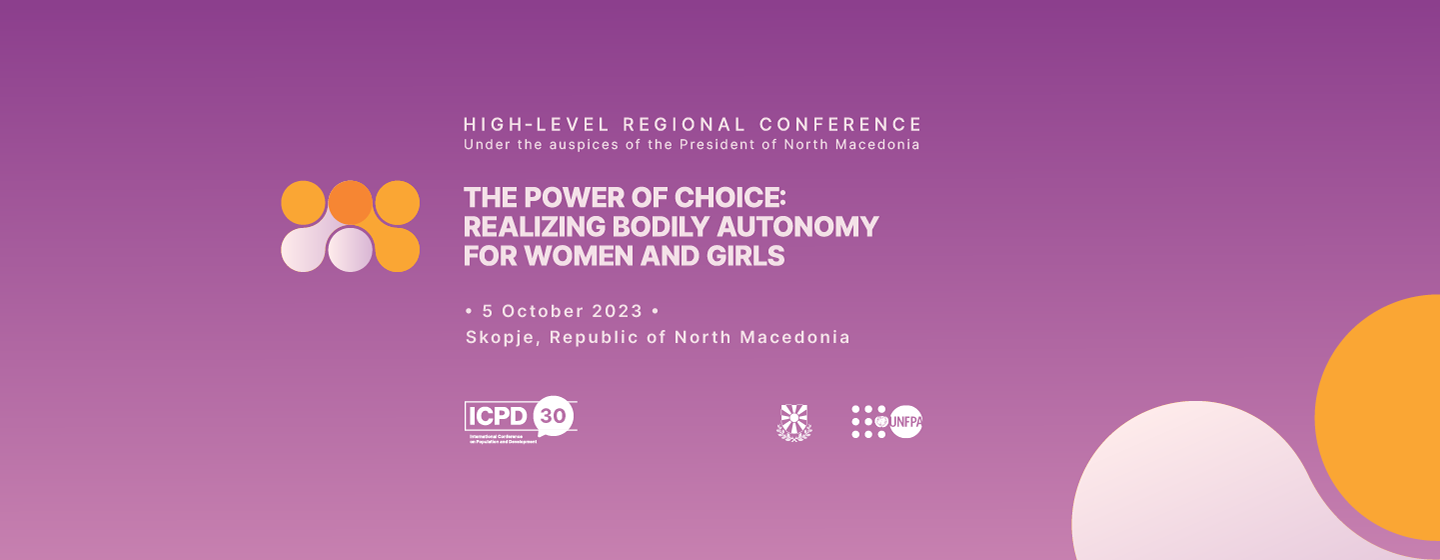
The right to bodily autonomy entails the power and agency to make choices about our own bodies, including on sexual and reproductive issues, without fear of violence or coercion, and the ability to access services, information, and resources.
Women and girls can realize their bodily autonomy when they have access to comprehensive sexuality education in school; when they can freely decide about contraception and when and with whom to have sex; when they can choose who to marry and if they want to get married at all; when they can decide whether and when to have children; when they can access sexual and reproductive health care without undue impediments; and when they can live free from gender-based discrimination and violence.
If women and girls are denied their right to bodily autonomy, they are less likely to have control in other areas of life, such as education, employment, or political participation.
This is why achieving bodily autonomy for women and girls is key for accelerating progress towards gender equality and for achieving the Sustainable Development Goals as well as the goals of the Programme of Action of the 1994 International Conference on Population and Development (ICPD).
Yet many people, and women and girls in particular, face constraints on their bodily autonomy. The consequences to their health, well-being, and potential in life can be devastating.
The international community recognized this challenge and, at the Generation Equality Forum (GEF) organized in 2021 to commemorate the 25th anniversary of the Beijing Declaration and Platform for Action, established an Action Coalition on Bodily Autonomy and Sexual and Reproductive Health and Rights. Led by UNFPA, North Macedonia, and other partners, the Action Coalition aims to galvanize support for making bodily autonomy and universal access to sexual and reproductive health and rights a reality for all.
The high-level region conference “The Power of Choice: Realizing Bodily Autonomy for Women and Girls” is organized by UNFPA and North Macedonia under the Action Coalition to offer a space for revisiting the commitments made in the region and developing a regional agenda for progress towards ensuring women’s bodily autonomy and sexual and reproductive health and rights.
The event will also contribute to the regional review of progress made towards implementing the Programme of Action adopted by the 1994 International Conference on Population and Development, which will culminate in a Regional ICPD30 Review Conference in Geneva on 19-20 October 2023.
The conference will bring together some 100 leaders, decision-makers, civil society activists, youth leaders, experts, and other stakeholders to celebrate what has been achieved, reflect on new challenges, and imagine and design strategies and narratives that will unite ICPD supporters in promoting sexual and reproductive health and rights and bodily autonomy, while fostering regional partnerships and collaboration.
For more information, please contact:
Office of the President of the Republic of North Macedonia
contact@president.mk
United Nations Population Fund
north.macedonia@unfpa.org or eecaro@unfpa.org
The right to bodily autonomy and sexual and reproductive health and rights as fundamentals for accelerating progress towards gender equality, achieving the Sustainable Development Goals, and the goals of the Programme of Action of the 1994 International Conference on Population and Development (ICPD). It is not only important for women and girls to have their right to bodily autonomy, but they will also have control in other areas of life, such as education, employment, or political participation.
UNFPA and North Macedonia, together with other partners, have been leading the Action Coalition on Bodily Autonomy and Sexual and Reproductive Health and Rights launched at the Generation Equality Forum in Paris in 2021.
It will be a space to celebrate achievements, reflect critically on remaining gaps, and chart a path for positioning bodily autonomy and sexual and reproductive health at the heart of development in the region.
UNFPA and the Spouse of the President of the Republic of North Macedonia under the auspices of the President of the Republic of North Macedonia.
The High-Level Conference will bring together Spouses of the Presidents in the region, policymakers, women leaders, civil society, young people, experts, and other stakeholders to reflect on advancing Bodily Autonomy in the region: an agenda for the future.
· Panel 1: Unpacking bodily autonomy: an overview
Unpacking bodily autonomy and its link with rights and choices, and its key role in the path towards gender equality and women and girls’ empowerment.
· Panel 2: Exploring progress and gaps in women’s exercise of Bodily Autonomy in the region
The session will reflect on the progress and challenges of women’s exercise of Bodily Autonomy and SRHR and make decisions free from coercion, violence, and discrimination; and in accessing available, affordable, and quality services and information.
· Panel 3: How do gender and social norms affect gender equality and bodily autonomy?
Reflection on social and gender norms behind issues of Bodily Autonomy and SRHR in the region with an intersectional, intercultural, human rights-based approach.
· Panel 4: Strategizing for a bold future for women and girls’ bodily autonomy in the region
Discussion on what are the main elements that we need to consider advancing the Agenda on Bodily Autonomy and SRHR for the region, considering the discussion in the morning and the elements that we might have missed.
· Call to action
Participants will discuss strategies to advance the ICPD agenda through the promotion of regional partnerships and collaboration and will be invited to Call to action to make bodily autonomy a reality for all.